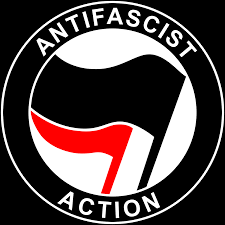
Introduction
Antifa, a term derived from ‘anti-fascist’, refers to a loosely affiliated movement rather than a single organization. Its relevance has surged in recent years, especially amidst global discussions surrounding social justice, political extremism, and civil rights. Understanding Antifa is crucial for comprehending the contemporary political landscape and the motivations behind various protests and actions occurring today.
Origins and Evolution
The roots of Antifa can be traced back to anti-fascist movements in Europe during the early 20th century, specifically in response to the rise of fascist regimes. The modern incarnation gained traction in the United States around the early 2000s, often emerging in response to events like the rise of white supremacist groups. Antifa members advocate for various leftist ideologies, emphasizing the importance of direct action and community organizing to combat perceived fascism and racism.
Goals and Activities
While Antifa does not have a centralized structure or leadership, its primary aim is to oppose fascist, racist, and far-right ideologies. Activities range from organizing counter-protests to taking part in civil disobedience, with some more radical factions engaging in confrontational tactics against groups they view as extremists. Notable instances of Antifa activism include counter-protests at rallies, notably during the events in Charlottesville in 2017, where they confronted white nationalist groups.
Controversies and Public Perception
Antifa has been a polarizing subject in media and political discourse. Critics often label the group as anarchists or radicals, arguing that some of their tactics promote violence and disorder. Conversely, supporters assert that Antifa is necessary to resist the growing influence of fascist ideologies in today’s society. The challenge arises in the ambiguity surrounding the movement’s activities, with various factions exhibiting different levels of aggression and activism.
Conclusion
The significance of Antifa in modern society highlights ongoing debates about freedom of speech, activism, and the fight against extremism. As political landscapes continue to evolve, Antifa represents a segment of society that feels a compelling need to respond to threats against democratic values and social equity. For readers, understanding Antifa offers a lens to engage critically with contemporary political issues, fostering informed discussions regarding the future of activism and civil rights in Canada and beyond.



